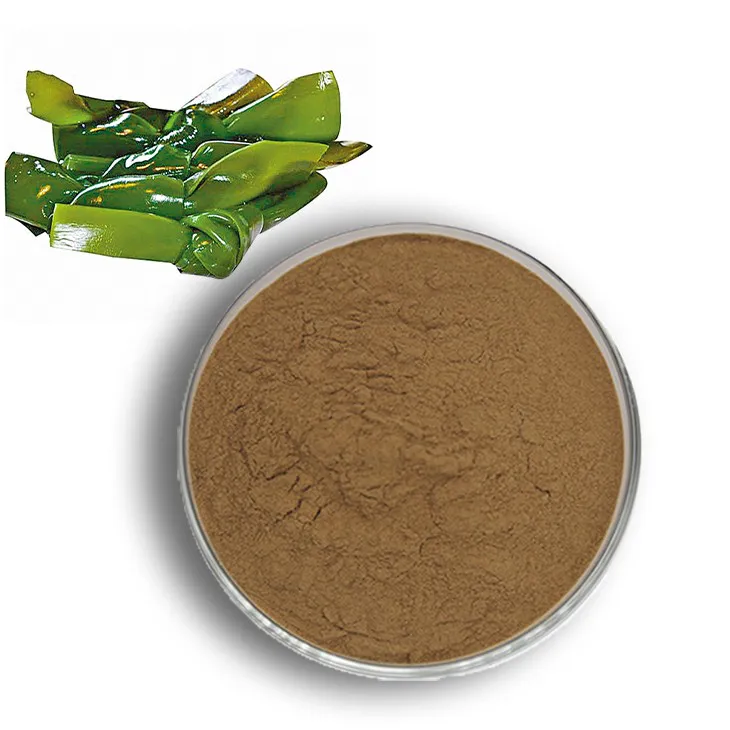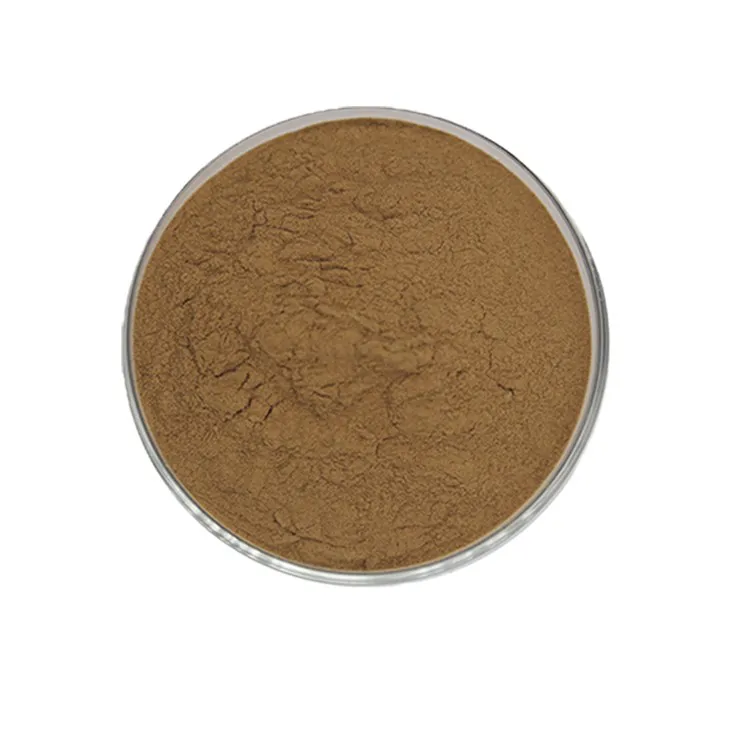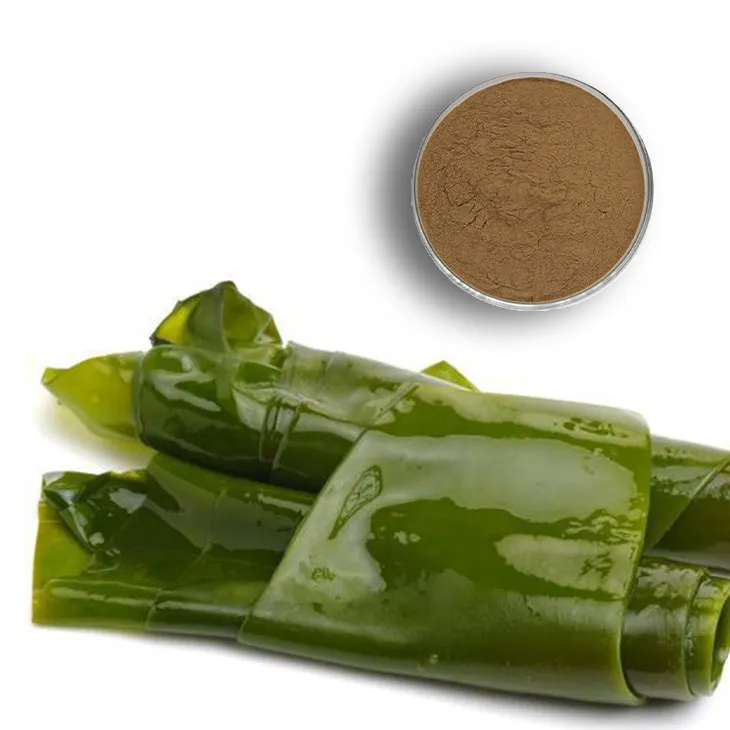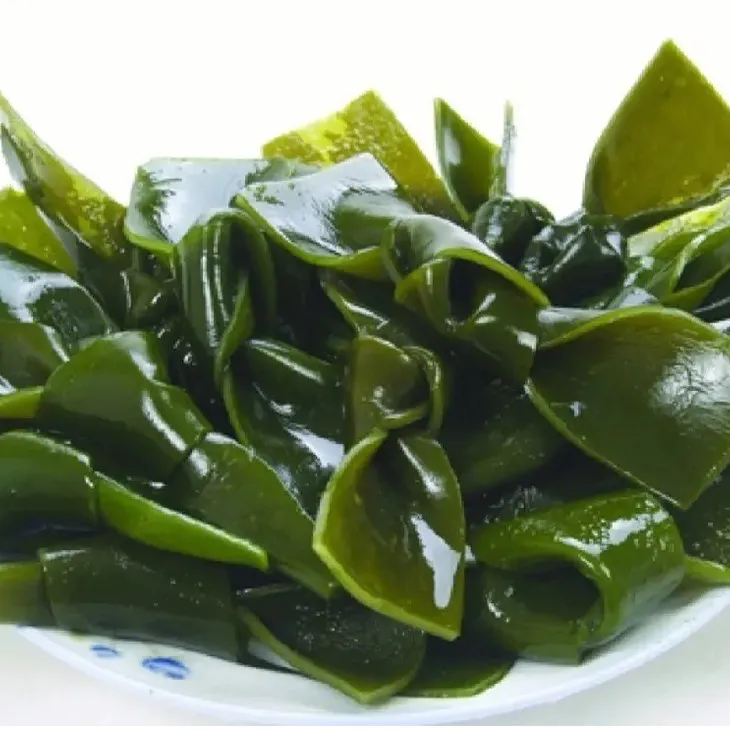- 0086-571-85302990
- sales@greenskybio.com
From the Depths to Your Plate: A Comprehensive Guide to Kelp Extract Powder
2024-07-03

1. Introduction to Kelp
Kelp is a large, brown seaweed that thrives in the cold, nutrient - rich waters of the ocean. It is an incredibly diverse and important part of the marine ecosystem. Kelp can form vast underwater "forests," providing shelter and food for a wide variety of marine organisms. These underwater habitats are not only beautiful but also crucial for the balance of the ocean environment.
Kelp is rich in a variety of nutrients. It contains significant amounts of iodine, which is essential for proper thyroid function in humans. Additionally, it has vitamins such as vitamin K, vitamin C, and various B - vitamins. Kelp also provides minerals like potassium, calcium, and magnesium. The presence of these nutrients makes kelp a potentially valuable addition to our diet.

2. Harvesting Kelp
Harvesting kelp is a carefully regulated process. Sustainable harvesting methods are crucial to ensure the long - term health of kelp forests.
2.1 Manual Harvesting
In some areas, kelp is harvested manually. Divers or small boats may be used to collect the kelp. This method allows for a more selective harvest, targeting only mature kelp plants. Manual harvesting can be time - consuming but is often more precise in terms of minimizing damage to the surrounding kelp forest.
2.2 Mechanical Harvesting
Mechanical harvesting is also employed in larger - scale operations. Specialized boats with cutting devices are used to harvest kelp. However, this method requires strict regulation to prevent over - harvesting and damage to the ocean floor. The equipment used must be designed to minimize the impact on other marine life and the overall kelp forest ecosystem.

3. Processing Kelp into Extract Powder
Once the kelp is harvested, it goes through a series of processing steps to be transformed into extract powder.
3.1 Cleaning
The first step is to clean the harvested kelp thoroughly. This involves removing any debris, such as sand, shells, or other marine organisms that may be attached to the kelp. Clean water is used to wash the kelp multiple times to ensure its purity.
3.2 Drying
After cleaning, the kelp is dried. There are different drying methods, including air drying and drying in specialized ovens. Air drying is a more natural method but can take longer. Drying in ovens allows for more controlled drying conditions, which can help to preserve the nutrients in the kelp. The dried kelp is then ground into a coarse powder.
3.3 Extraction
The ground kelp powder is then subjected to an extraction process. This may involve using solvents such as water or ethanol to extract the active compounds from the kelp. The extraction process is carefully controlled to ensure that the desired nutrients and bioactive substances are obtained. After extraction, the solvent is removed, leaving behind a concentrated kelp extract.
3.4 Final Powder Production
The concentrated kelp extract is further dried and processed into a fine powder. This final powder is what is known as Kelp Extract Powder. It is highly concentrated and contains a significant amount of the nutrients and bioactive compounds found in the original kelp.

4. Nutritional Benefits of Kelp Extract Powder
Kelp Extract Powder offers numerous nutritional benefits.
- Iodine: As mentioned earlier, kelp is a rich source of iodine. Iodine is necessary for the production of thyroid hormones, which play a crucial role in regulating metabolism, growth, and development.
- Vitamins: It contains vitamins like vitamin K, which is important for blood clotting and bone health. Vitamin C, an antioxidant, helps to boost the immune system. The B - vitamins in kelp extract powder are involved in energy production and nerve function.
- Minerals: The presence of minerals such as potassium, calcium, and magnesium makes kelp extract powder beneficial for maintaining healthy bones, regulating blood pressure, and supporting muscle function.

5. Culinary Uses of Kelp Extract Powder
Kelp extract powder has a wide range of culinary uses.
5.1 Flavor Enhancement
Kelp extract powder can add a unique umami flavor to dishes. It can be used in soups, stews, and sauces to give a depth of flavor. For example, in a vegetable soup, a small amount of kelp extract powder can enhance the overall taste, making it more savory and complex. It is also used in some Asian cuisines, such as Japanese and Korean cooking, where umami flavors are highly prized.
5.2 Nutritional Addition
As a nutritional supplement, kelp extract powder can be added to various foods. It can be incorporated into baked goods like bread or muffins. In smoothies, it can provide an extra boost of nutrients. Adding it to salad dressings is another way to introduce the nutritional benefits of kelp into the diet.
6. Kelp Extract Powder and Sustainability
Kelp extract powder has the potential to contribute to a sustainable food future.
- Kelp is a highly renewable resource. It grows relatively quickly compared to many land - based crops. Sustainable harvesting practices can ensure that kelp forests continue to thrive while providing a source of food and other products.
- The production of kelp extract powder can also be part of a circular economy. For example, the by - products of kelp processing can be used for other purposes, such as in the production of biofuels or fertilizers.
7. Conclusion
Kelp extract powder is a remarkable product that has journeyed from the ocean's depths to our plates. Its rich nutritional profile, diverse culinary uses, and potential for sustainability make it an ingredient worth exploring further. As we continue to look for ways to enhance our diets and protect the environment, kelp extract powder may play an increasingly important role in the future of food.
FAQ:
What are the main properties of kelp?
Kelp is rich in various nutrients. It contains a significant amount of iodine which is essential for thyroid function. It also has vitamins like A, C, and E, as well as minerals such as potassium, magnesium, and calcium. Additionally, kelp contains dietary fiber which can aid in digestion.
How is kelp transformed into extract powder?
First, kelp is harvested from the ocean. Then it is washed thoroughly to remove impurities like sand and seaweed debris. After that, it is dried. The dried kelp is then processed through techniques such as grinding and extraction. Grinding breaks the kelp into a fine powder form, and extraction may involve using solvents to isolate specific beneficial compounds, finally resulting in kelp extract powder.
What are the nutritional benefits of kelp extract powder on our plates?
Kelp extract powder can be a great source of added nutrition. As mentioned before, it provides iodine which is crucial for maintaining a healthy thyroid gland. The vitamins and minerals present in it contribute to overall well - being. For example, potassium helps in maintaining proper heart function and blood pressure regulation. Also, the dietary fiber in kelp extract powder can promote a healthy digestive system.
How does kelp extract powder enhance flavors?
Kelp extract powder has a unique umami flavor. Umami is one of the five basic tastes, and it adds a depth and complexity to dishes. It can be used in various recipes like soups, stews, and sauces. In small amounts, it can enhance the natural flavors of ingredients in a dish without overpowering them, creating a more balanced and delicious taste profile.
What role does kelp extract powder play in a sustainable food future?
Kelp is a highly sustainable resource. It grows relatively quickly and does not require the use of fertilizers or large amounts of fresh water like some land - based crops. Using kelp extract powder in our diet can reduce the reliance on less sustainable food sources. Moreover, as more people become aware of its benefits, it can encourage the growth of kelp farming, which has a relatively low environmental impact compared to many other forms of agriculture.
Related literature
- The Nutritional and Culinary Value of Kelp: A Comprehensive Review"
- "Kelp: From the Ocean to the Plate - A Sustainability Perspective"
- "Processing and Properties of Kelp Extract Powders for Food Applications"
- ▶ Hesperidin
- ▶ Citrus Bioflavonoids
- ▶ Plant Extract
- ▶ lycopene
- ▶ Diosmin
- ▶ Grape seed extract
- ▶ Sea buckthorn Juice Powder
- ▶ Fruit Juice Powder
- ▶ Hops Extract
- ▶ Artichoke Extract
- ▶ Mushroom extract
- ▶ Astaxanthin
- ▶ Green Tea Extract
- ▶ Curcumin
- ▶ Horse Chestnut Extract
- ▶ Other Product
- ▶ Boswellia Serrata Extract
- ▶ Resveratrol
- ▶ Marigold Extract
- ▶ Grape Leaf Extract
- ▶ New Product
- ▶ Aminolevulinic acid
- ▶ Cranberry Extract
- ▶ Red Yeast Rice
- ▶ Red Wine Extract
-
Oat Straw Extract Powder
2024-07-03
-
Andrographis Paniculata Extract Powder
2024-07-03
-
Curcuma Longa Extract
2024-07-03
-
Mangosteen extract powder
2024-07-03
-
Camu Camu Extract
2024-07-03
-
Grape Seed Extract
2024-07-03
-
Clove Powder
2024-07-03
-
Plantain extract
2024-07-03
-
Beetroot Powder
2024-07-03
-
Astaxanthin
2024-07-03





















